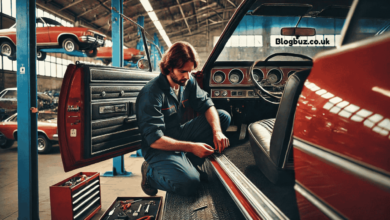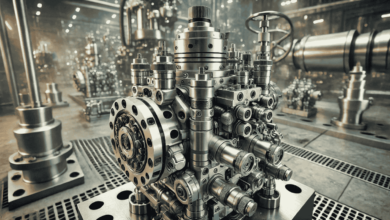Mastering Mechanical Repair: Essential Tips for Car Maintenance

Regular car maintenance is an integral part of owning a vehicle. Not only does it ensure the longevity of your car, but it also enhances road safety and can prevent expensive mechanical repair bills. As a vehicle owner, understanding what goes into preserving your car’s health is crucial for those aiming to master their maintenance routine. Here are some essential tips to keep your vehicle running smoothly.
Understanding Your Vehicle’s Needs
Maintaining your car begins with understanding its requirements. Each vehicle is different, and the manufacturer’s guidelines should be your first point of reference. These guidelines are typically found in the owner’s manual and provide a schedule for maintenance tasks such as oil changes, brake inspections, and tyre rotations.
Regular Oil Checks and Changes
Engine oil is the lifeblood of your vehicle, ensuring that all moving parts are lubricated and functioning correctly. It’s essential to check your oil levels regularly and to change the oil according to the manufacturer’s recommendations. Failing to do so can lead to poor engine performance and potentially severe engine damage.
Inspecting Tyres for Wear and Tear
Tyres are your car’s only point of contact with the road, making their maintenance paramount for safety. Regularly inspect your tyres for tread depth, wear patterns, and pressure. Maintaining the recommended tyre pressure can improve fuel efficiency and prevent premature wear.
Brakes: Your Safety Depends on Them
Brake systems are a crucial safety feature in any vehicle. Listening for unusual noises and paying attention to changes in braking performance can alert you to potential issues. It is vital to have your brakes checked by a professional if you suspect any problems.
Keeping the Battery Charged and Healthy
The battery is another critical component of your car, responsible for starting the engine and powering electrical components. Ensure that the battery’s connections are clean, tight, and corrosion-free. A battery’s life expectancy is usually around three to five years; keep track of its age and have it tested as it nears the end of its life span.
Coolant Levels and Cooling System Maintenance
Your car’s cooling system prevents the engine from overheating, which is why maintaining the correct coolant levels is necessary. It’s also important to periodically flush the system and replace the coolant to remove any debris and prevent corrosion within the engine.
Replacing Filters for Optimal Performance
Air and fuel filters are essential for protecting the engine from contaminants and ensuring efficient performance. These filters should be replaced regularly to prevent clogging, which can lead to reduced performance or even engine damage
.
The Importance of Wiper Blades and Lights
Visibility is critical when driving. Wiper blades should be replaced if they leave streaks or if the rubber has degraded. Similarly, all vehicle lights need to be in good working order. This includes headlights, brake lights, turn signals, and reverse lights. They are vital not just for your visibility but also for communicating with other road users.
Understanding the Electrical System
Modern vehicles come with complex electrical systems. While troubleshooting these can be challenging, keeping an eye out for warning lights on the dashboard or flickering lights can indicate a problem with the electrical system. It’s also wise to ensure that your alternator, which charges the battery, is working correctly.
Suspension System Checks for a Smooth Ride
The suspension system affects both the comfort of your drive and the control of the vehicle. Over time, shocks and struts can wear out, which may lead to a bumpy ride or handling issues. Regular checks can detect these problems early on.
The Significance of Regular Professional Servicing
While many car maintenance tasks can be done at home, regular professional servicing is pivotal. Mechanics can perform comprehensive assessments that go beyond the basics, addressing aspects such as the exhaust system, onboard diagnostics, and intricate engine components.
Keeping Records of Maintenance
Maintaining a log of the services and repairs your car undergoes can be highly beneficial. It allows you to track when certain tasks were performed and helps in diagnosing problems more efficiently should they arise in the future.
Investing in Quality Parts and Fluids
Using high-quality replacement parts and fluids can make a significant difference in your car’s performance and longevity. Opt for manufacturer-recommended parts or reputable aftermarket options to ensure your vehicle runs as it should.
Learning Basic Mechanical Skills
Lastly, acquiring some basic mechanical skills can be invaluable for car owners. This doesn’t mean you have to become a mechanic overnight, but understanding how to perform simple tasks like changing a tyre or jump-starting your car can save you in a pinch.
In summary, car maintenance is a multifaceted practice that requires attention to detail, adherence to schedules, and a proactive approach. By following the outlined tips, car owners can prevent the need for extensive mechanical repair, thereby securing both the condition of their vehicle and their peace of mind. Take the time to learn about your car’s specific needs and commit to regular check-ups to keep your vehicle in top form for years to come.




